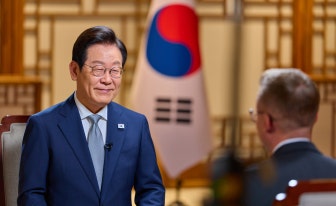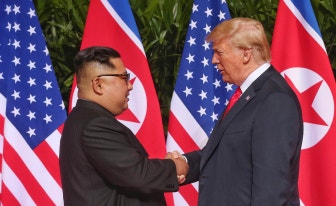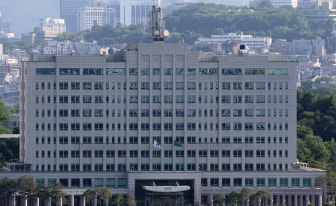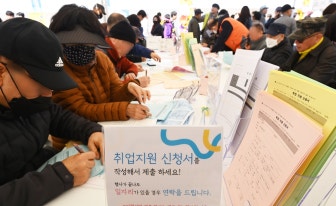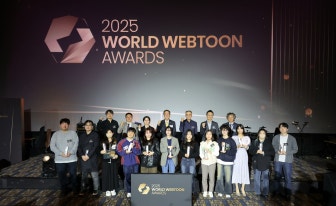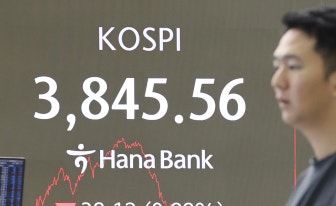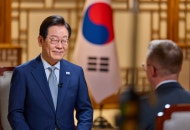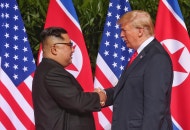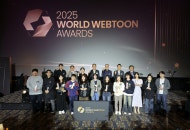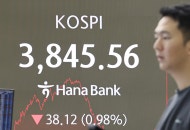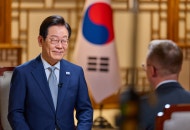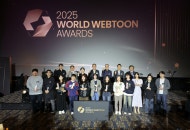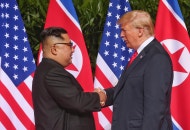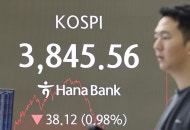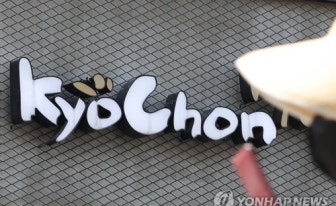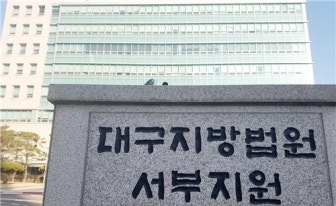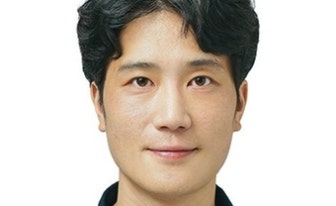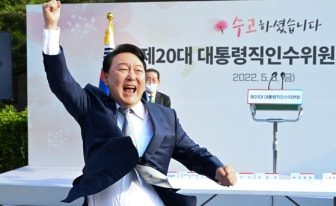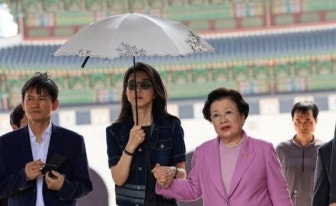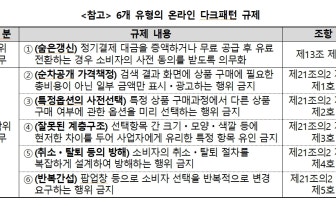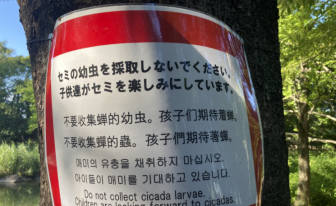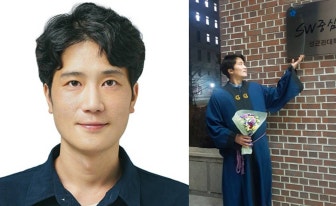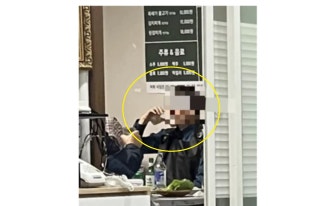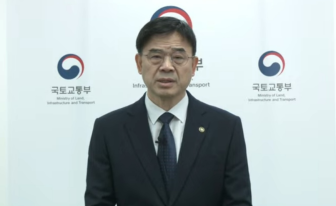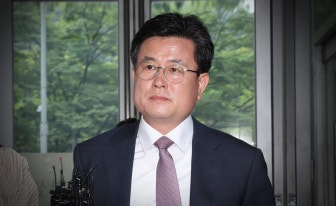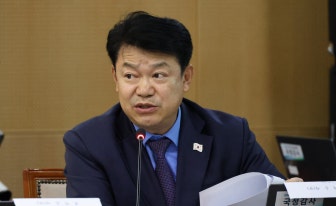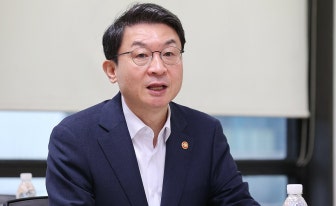| L. Murugan, India’s minister of state for information and broadcasting, speaks to Indian community members at the Indian Embassy in Seoul. (Sanjay Kumar/The Korea Herald) |
India and Korea should harness the creative energy of their young people to drive the content economy, as both nations’ media industries naturally complement each other, according to India's Minister of State for Information and Broadcasting L. Murugan.
Once a niche trend, Hallyu has become a cultural force in India, with post-pandemic growth driven by open-minded millennials whose enthusiasm for Korean content is boosting demand for Korean products.
Speaking with The Korea Herald in an interview during his first visit as minister to the Busan International Film Festival, Murugan highlighted the expanding horizons of the content economy.
The minister applauded Korea for “setting global standards in innovation through the Korean Wave,” while noting India’s “unmatched scale and storytelling diversity.”
“Youngsters today are brilliant and are driving soft power and the creative economy. Each mobile phone holder is potentially a content creator,” Murugan said.
Murugan noted that content has evolved from four-hour films to 20- to 30-second shorts, in which young creators now convey ideas and themes with remarkable efficiency.
“This is the soft power India and Korea must harness,” stressed the minister.
Murugan believes that through industry-to-industry partnerships, India and Korea will co-create films, streaming series, animation and live events that will travel far beyond their borders.
He pointed to enormous potential in VFX, immersive media and technology collaborations, calling them “key to positioning Asia as a true powerhouse in global media and entertainment.”
| L. Murugan (sixth from left), India’s minister of state for information and broadcasting attends Bharat Parv event held during 30th Busan International Film Festival.(Indian Embassy in Seoul) |
CJ ENM partnered with Amazon Prime Video to expand K-content’s global reach through its 200 million-plus subscribers, highlighting Prime Video’s push to globalize Korean entertainment. Meanwhile, K-pop powerhouse Hybe launched its Indian subsidiary Hybe India, and Korean gaming firms like Krafton are thriving in India’s rapidly growing gaming market.
“Together, India and Korea can set new industry standards and drive the future of digital entertainment worldwide.”
Referring to the country's long-term development agenda, Murugan said “India is moving towards Viksit Bharat 2047, with youth driving science, technology and the economy. Similarly, Korean youth, such as those behind BTS, are shaping the media and entertainment landscape."
When asked about hurdles of language, market access and intellectual property issues in joint India-Korea productions, Murugan said India is bridging differences by promoting multilingual content, high-quality subtitling and cultural consulting.
The minister said India is working through platforms like India Cine Hub and the India–Korea CEPA to ease trade barriers and facilitate co-productions, while also promoting high-quality localization, dubbing and writers’ exchanges to foster authentic cross-cultural storytelling.
“By combining India’s creative talent with Korea’s technological prowess in AI, virtual reality and data analytics, we can develop innovative content creation, personalized viewing and smarter distribution methods,” he said.
| L. Murugan (fifth from right), India’s minister of state for information and broadcasting interacts with Krafton representatives during his visit to Seoul .(Indian Embassy in Seoul) |
Minister of State for Information & Broadcasting met Krafton CEO Changhan Kim in Seoul to explore deeper industrial ties in gaming and e-sports.
“We can combine Korea’s quality and global influence with India’s scale and diversity to create content that resonates worldwide. Together, we can shape the future of Asian storytelling — not just in film, but also in gaming, animation and digital platforms.”
Asked why Korean content is hugely popular in India while Indian content remains less visible in Korea, Murugan attributed the imbalance to access rather than content quality.
“By leveraging co-productions, OTTs, curated showcases, and cultural diplomacy, Indian content can gradually secure mindshare in Korea — just as Korean content has done in India,” he said.
With Korean content gaining popularity among Indian youth and Indian films like "RRR" finding audiences in Korea, the Waves 2025 summit in Mumbai reflected Indian Prime Minister Narendra Modi’s vision for the creative economy, according to Murugan.
“Korean participation at Waves 2025 was significant, and several media professionals expressed interest in working with India,” Murugan said.
"Since the 2015 India-Korea Audio-Visual Co-Production Agreement, collaboration has grown steadily," noted Murugan.
The agreement under the India-ROK CEPA, a 2010 bilateral trade deal, enables the co-production of films, animation and broadcasting programs between India and South Korea.
Murugan plans to boost co-productions, tech-driven projects and digital distribution, while NFDC-NFAI preserves over 2,500 films through professional restoration.
The ministry will host the 56th International Film Festival of India next month in the state of Goa.
“With awards like best debut and rising stars, and initiatives like Creative Minds of Tomorrow, IFFI will continue to empower new storytellers,” he said.
| L. Murugan, India’s minister of state for information and broadcasting speaks with Indian community members at the Indian Embassy in Seoul. (Sanjay Kumar/The Korea Herald) |
Profile
Born in 1977 in the southeastern Indian state of Tamil Nadu, L. Murugan currently serves as India’s minister of state for information and broadcasting and for parliamentary affairs. Formerly serving in the Ministry of Fisheries, Animal Husbandry and Dairying, he holds a Ph.D. from the University of Madras, has practiced law for 15 years, and has been active in student politics since 1997.




